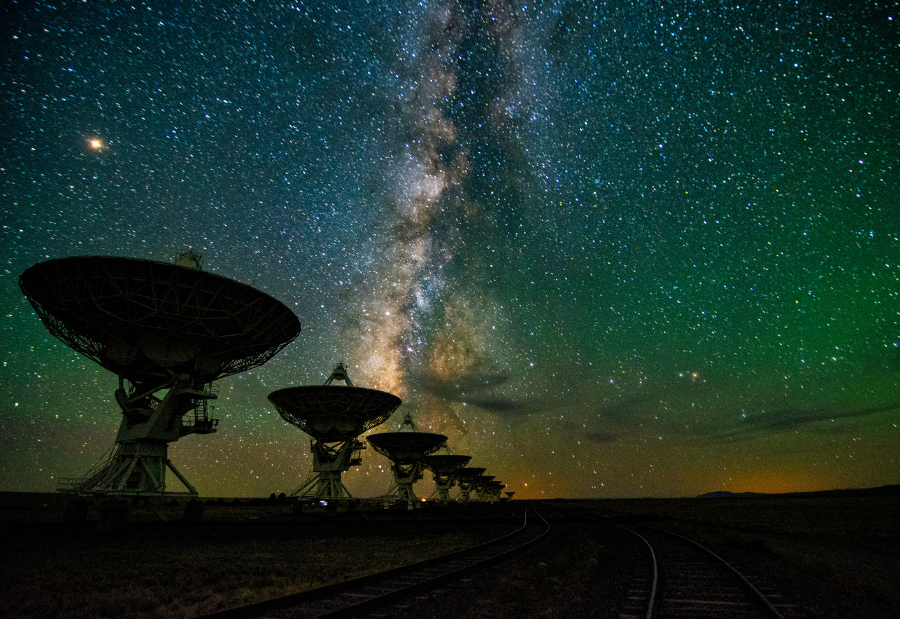Scientists across multiple countries are raising alarms over new findings that show the second generation Starlink V2 mini satellites are producing strong radio interference that threatens radio astronomy worldwide. These satellites are designed to expand global internet access, but new research shows they are also creating powerful unwanted signals that can disrupt the study of the universe.
Recent observations using the LOFAR radiotelescope reveal that the Starlink V2 mini satellites emit interference up to 32 times stronger than previous generations. Radiotelescopes detect extremely faint signals from distant galaxies stars and cosmic origins. Researchers describe this issue as similar to trying to see the weakest star in the sky while someone shines a bright light directly at your face. The intense interference makes it difficult for astronomers to capture the delicate signals they depend on.
The concern grows as Starlink continues to launch satellites at a rapid pace to improve global connectivity. Radio astronomy relies on an environment free from artificial electromagnetic noise. Scientists warn that if these interferences continue unchecked the world could lose its ability to observe the universe in the way it has been studied for decades. Experts like Federico Di Bruno from the SKA Observatory describe the situation as a “turning point” and caution that the damage could become irreversible.
Researchers say that space companies could help by following stricter guidelines to reduce unwanted emissions from satellites. There are positive cases of cooperation such as the work happening in the Netherlands where scientists companies and agencies collaborate to find solutions. However satellite launches are increasing faster than regulations can adapt.
Scientists emphasize that space is not only a commercial resource. It is a shared environment that belongs to everyone. They warn that without action the night sky could be dominated by artificial signals rather than natural starlight. This would affect both scientific research and the natural view of the sky.
The situation serves as a reminder that technological progress must coexist with scientific needs and respect for space. Astronomers are urging swift action to prevent a future where artificial noise overwhelms the natural signals of the universe. They stress the need to find a balance between global internet access astronomy and the protection of the sky.
Also read: Viksit Workforce for a Viksit Bharat
Do Follow: The Mainstream formerly known as CIO News LinkedIn Account | The Mainstream formerly known as CIO News Facebook | The Mainstream formerly known as CIO News Youtube | The Mainstream formerly known as CIO News Twitter
About us:
The Mainstream formerly known as CIO News is a premier platform dedicated to delivering latest news, updates, and insights from the tech industry. With its strong foundation of intellectual property and thought leadership, the platform is well-positioned to stay ahead of the curve and lead conversations about how technology shapes our world. From its early days as CIO News to its rebranding as The Mainstream on November 28, 2024, it has been expanding its global reach, targeting key markets in the Middle East & Africa, ASEAN, the USA, and the UK. The Mainstream is a vision to put technology at the center of every conversation, inspiring professionals and organizations to embrace the future of tech.




